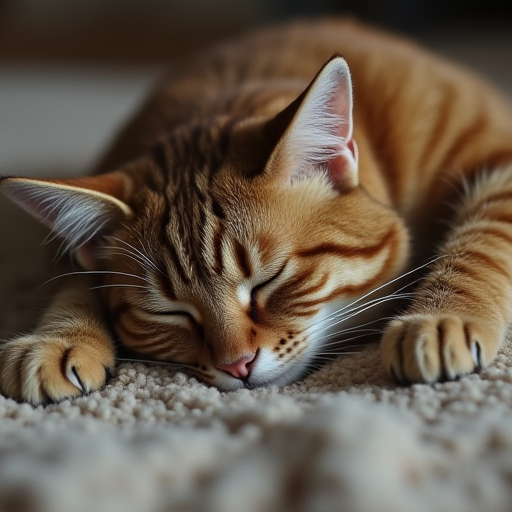
Why Do Cats Sleep So Long?
Cats are renowned for their love of sleep, often curling up for hours on end in cozy corners or sunny spots. It's not uncommon for cat owners to wonder why their feline friends seem to spend so much time snoozing. In this article, we will explore the reasons behind cats' extended sleep patterns, examining their evolutionary background, biological needs, and behaviors.
The Evolutionary Perspective
To understand why cats sleep so much, it's essential to consider their evolutionary history. Cats are natural predators, and their ancestors were solitary hunters. In the wild, hunting requires bursts of intense energy and focus, followed by periods of rest to conserve energy for the next hunt. This predatory lifestyle has shaped the modern domestic cat's sleep patterns.
Wild cats, such as lions and tigers, exhibit similar sleeping habits, often resting for 16 to 20 hours a day. This behavior is an adaptation to their hunting lifestyle, where energy conservation is crucial. Domestic cats have inherited these traits from their wild ancestors, leading to their prolonged sleeping hours.
Biological Needs
Sleep Cycles
Cats experience different sleep cycles, much like humans. They alternate between light, dozing sleep and deeper, REM (Rapid Eye Movement) sleep, which is when dreaming occurs. Approximately 70% of a cat's sleep is light, and 30% is deep. During REM sleep, cats may twitch, move their paws, or flick their ears, similar to humans experiencing dreams.
Energy Conservation
Cats are crepuscular animals, meaning they are most active during dawn and dusk. Their sleep patterns align with their hunting instincts, as these times are optimal for hunting small prey. Between these active periods, cats conserve energy by sleeping. Their bodies are designed to operate at peak efficiency during short bursts of activity, necessitating long rest periods to recharge.
Growth and Development
For kittens, sleep is even more crucial. During their early weeks of life, kittens can sleep up to 20 hours a day. Sleep is vital for their growth and development, as it supports the release of growth hormones and the development of their nervous system. As kittens grow, the amount of sleep gradually decreases, but the need for ample rest remains significant throughout their lives.
Behavioral Factors
Cats' sleeping habits are also influenced by their environment, age, and individual personalities.
Environmental Factors
Cats tend to sleep more when they are bored or have limited stimulation. A cat living in a calm, quiet household may sleep more than one in a bustling, active environment. Seasonal changes can also affect sleep patterns, with cats often sleeping longer during colder months.
Age
As cats age, they tend to sleep more. Older cats may sleep up to 20 hours a day as their activity levels decrease and they require more rest to recuperate from daily activities. Conversely, younger cats and kittens have higher energy levels and may sleep less during their waking periods.
Personality
Just like humans, cats have unique personalities that can influence their sleep patterns. Some cats may be naturally more active and curious, while others may prefer a more sedentary lifestyle. These personality traits can affect how much a cat sleeps and how they distribute their sleep throughout the day.
Conclusion
Cats' long sleeping hours are a result of their evolutionary history, biological needs, and individual behaviors. These factors combine to create a unique sleep pattern that supports their predatory nature and energy conservation. Understanding why cats sleep so much can help pet owners provide a supportive environment that respects their natural instincts while ensuring their cats remain healthy and happy.
By acknowledging the reasons behind their feline friend's extended napping, cat owners can better appreciate and accommodate their pets' need for rest, creating a harmonious and fulfilling relationship.
